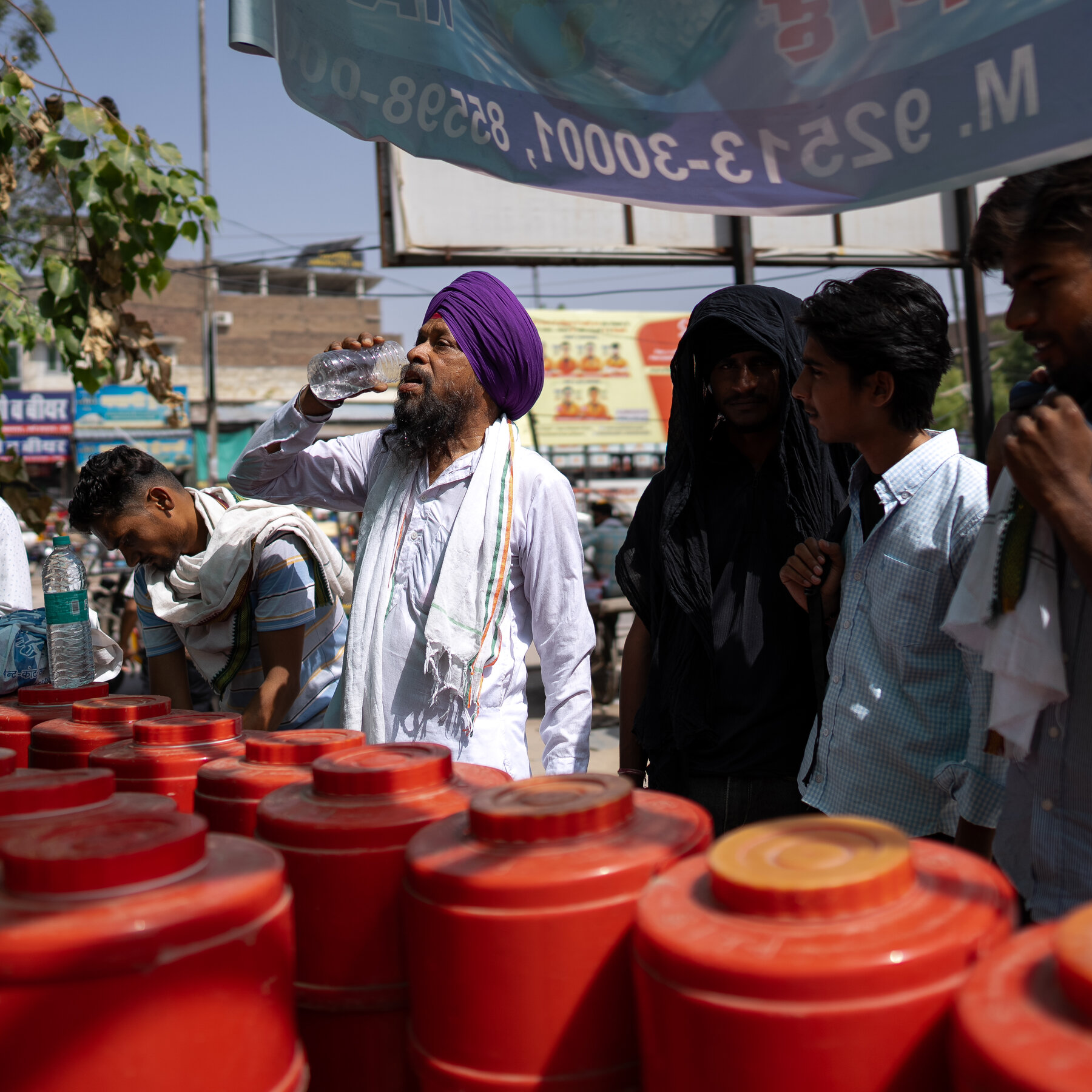Science
Experts Highlight Uncertainty Surrounding Heat-Related Deaths in India

Recent discussions among public health experts and scientists reveal a troubling gap in understanding the impact of extreme heat in India. Despite the rising temperatures, officials are struggling to quantify the number of heat-related deaths each year, leading to concerns about public health management and disaster preparedness.
While India experiences scorching summers, with temperatures frequently soaring above 45 degrees Celsius, the specific toll these conditions take on the population remains largely untracked. According to the Indian Meteorological Department, the country recorded a significant heatwave in June 2023, but the exact number of fatalities attributed to these conditions is still unclear.
Officials Lack Accurate Data
Public health experts argue that the absence of a systematic approach to monitoring heat-related deaths hampers effective intervention strategies. The Health Ministry and the National Disaster Management Authority have yet to establish a clear protocol for recording these incidents. As a result, many deaths go unreported or are misclassified under other medical conditions.
In several regions, local health authorities are not equipped with the necessary tools to accurately track the health impacts of extreme temperatures. This lack of data prevents policymakers from implementing effective measures to safeguard vulnerable populations. Researchers have pointed out that marginalized communities, particularly those working outdoors, are at the highest risk during heatwaves.
Need for Comprehensive Strategies
The National Disaster Management Act mandates that states prepare for extreme weather events, yet the focus has not consistently addressed the health implications of heatwaves. Public health experts emphasize that improved data collection is essential not only for immediate responses but also for long-term planning to mitigate the effects of climate change.
As India’s temperatures continue to rise, scientists warn that the need for effective heat management strategies becomes increasingly urgent. They advocate for a multi-faceted approach, involving community education, the establishment of cooling centers, and enhanced healthcare services tailored to heat-related illnesses.
In light of these concerns, experts call for the involvement of various stakeholders, including government agencies, non-profits, and academic institutions, to develop a comprehensive strategy. This collaboration could lead to better preparedness, ultimately reducing the number of preventable deaths during severe heat events.
Understanding the true impact of heatwaves in India is not just a matter of academic interest; it has serious implications for public health and safety. As temperatures rise, the urgency to improve data collection and implement effective strategies becomes paramount to protect the most vulnerable populations from the escalating risks associated with extreme heat.
-

 Technology5 months ago
Technology5 months agoDiscover the Top 10 Calorie Counting Apps of 2025
-

 Health3 months ago
Health3 months agoBella Hadid Shares Health Update After Treatment for Lyme Disease
-

 Health3 months ago
Health3 months agoErin Bates Shares Recovery Update Following Sepsis Complications
-

 Technology4 months ago
Technology4 months agoDiscover How to Reverse Image Search Using ChatGPT Effortlessly
-

 Technology1 month ago
Technology1 month agoDiscover 2025’s Top GPUs for Exceptional 4K Gaming Performance
-

 Technology3 months ago
Technology3 months agoElectric Moto Influencer Surronster Arrested in Tijuana
-

 Technology6 days ago
Technology6 days agoOpenAI to Implement Age Verification for ChatGPT by December 2025
-

 Technology5 months ago
Technology5 months agoMeta Initiates $60B AI Data Center Expansion, Starting in Ohio
-

 Technology5 months ago
Technology5 months agoRecovering a Suspended TikTok Account: A Step-by-Step Guide
-

 Health5 months ago
Health5 months agoTested: Rab Firewall Mountain Jacket Survives Harsh Conditions
-

 Health3 months ago
Health3 months agoAnalysts Project Stronger Growth for Apple’s iPhone 17 Lineup
-

 Lifestyle5 months ago
Lifestyle5 months agoBelton Family Reunites After Daughter Survives Hill Country Floods





















